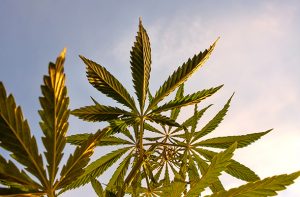 Two days following the publication of my last post, in which I discussed the potential implications of the European Commission’s (the Commission) preliminary decision to regulate cannabidiol (CBD) derived from hemp flower as a narcotic drug, Europe’s highest court, the Court of Justice of the European Union (the CJEU), weighed in on the matter.
Two days following the publication of my last post, in which I discussed the potential implications of the European Commission’s (the Commission) preliminary decision to regulate cannabidiol (CBD) derived from hemp flower as a narcotic drug, Europe’s highest court, the Court of Justice of the European Union (the CJEU), weighed in on the matter.
In a landmark interpretation of the U.N. Single Convention on Narcotic Drugs of 1961 (the Single Convention), the court of five judges held that CBD derived from the entire hemp plant is not a narcotic.
In 2018, the CJEU was asked by the Court of Appeals of Aix-en-Provence to determine whether a prohibition on the marketing of CBD derived from the whole hemp plant was contrary to EU law. At issue in the case was the prosecution of a CBD company that marketed vaping products containing CBD oil extracted from the whole hemp plant, which French law prohibits (only hemp fiber and seeds may be put to commercial use). However, the CBD used in the marketed products was extracted from hemp lawfully cultivated and processed under Czech law.

How Filevine Helps In-House Legal Teams Manage Every Matter With Confidence
AI powers tools for data intake, document management, and drafting contracts.
Although the CJEU acknowledged that “a literal interpretation of the provisions of the Single Convention might lead to the conclusion that […] CBD […] extracted from a plant of the Cannabis genus […] constitutes a cannabis extract [….],” the court also pointed to the fact that:
[S]ince CBD does not contain a psychoactive ingredient in the current state of scientific knowledge … it would be contrary to the purpose and general spirit of the Single Convention to include it under the definition of “drugs” within the meaning of that convention as a cannabis extract.
Through its ruling (called a “preliminary ruling” because the court was asked to interpret the law of an EU member state), the CJEU lifted the veil on the murky international legal status of lawfully produced CBD by declaring the famous cannabinoid is not a drug under the Single Convention, and thus, under EU law, which expressly refers to the Single Convention.
Consequently, EU member states are precluded from banning the marketing of lawful produced CBD products (i.e., legitimate goods) because these products fall squarely within the EU’s free movement of goods provisions, and as such, should be traded without restrictions between EU member states.

Stand With Survivors: Legal Tools To Make A Real Difference This DVAM
Enhance your legal skills to advocate for survivors of intimate partner violence.
This CJEU landmark ruling is significant because it is binding on all EU member states, not just France. This means that EU governments that are cracking down on the sale and marketing of CBD products will have to amend their laws and regulations. Moreover, the ruling should help clarify and harmonize the fragmented CBD laws and regulation of EU member states. In fact, shortly after the release of the CJEU ruling, EU member states, including a group of German lawmakers, vocalized the need to promptly regulate the manufacture, sale, and marketing of CBD products in the EU.
This legal decision should also be binding on the Commission, which has yet to take a final stance on whether CBD derived from hemp flower should be treated as a narcotic in the context of novel food applications. You may recall from my last post that the Commission’s preliminary consideration for treating CBD as a narcotic drug was based on a literal reading of the Single Convention. Therefore, given the CJEU’s legal reasoning, it is hard to imagine the Commission would deviate from this rationale, though some commentators anticipate the Commission may drag its feet in recognizing the ruling for political reasons. Yet, the Commission’s decision set aside, there is no doubt that the CJEU ruling represents a huge step toward the creation of a more competitive European CBD market, one that may even facilitate the breaking of international trade barriers.
Nathalie practices out of Harris Bricken’s Portland office and focuses on the regulatory framework of hemp-derived CBD (“hemp CBD”) products. She is an authority on FDA enforcement, Food, Drug & Cosmetic Act and other laws and regulations surrounding hemp and hemp CBD products. She also advises domestic and international clients on the sale, distribution, marketing, labeling, importation and exportation of these products. Nathalie frequently speaks on these issues and has made national media appearances, including on NPR’s Marketplace. For two consecutive years, Nathalie has been selected as a “Rising Star” by Super Lawyers Magazine, an honor bestowed on only 2.5% of eligible Oregon attorneys. Nathalie is also a regular contributor to her firm’s Canna Law Blog.